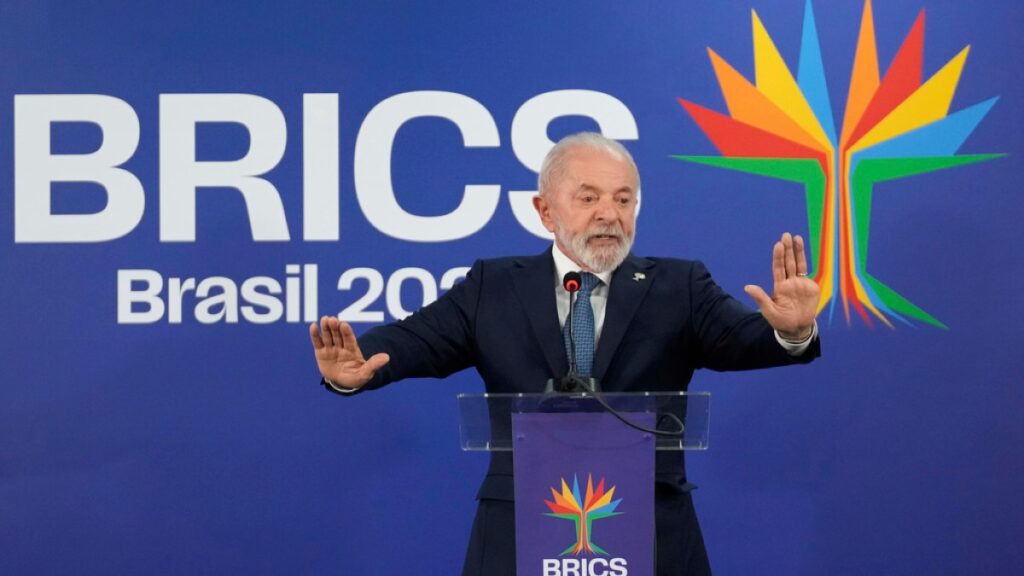US naval forces have unsettled some in South America who see them as a precursor to possible intervention in Venezuela.
Published On 8 Sep 2025
Brazilian President Luiz Inacio Lula da Silva has criticised the deployment of United States naval forces to the Caribbean, calling them a source of strain that could undermine peace in the region.
The South American leader expressed concern on Monday over the concentration of US forces, seen by some as a possible prelude to an attack on Venezuela.
Recommended Stories
list of 3 itemsend of list
“The presence of the armed forces of the largest power in the Caribbean Sea is a factor of tension,” Lula said during the opening of a virtual BRICS summit.
The US has said its military forces are in the region to counter drug trafficking. But the deployment has been paired with US threats against the government of Venezuelan President Nicolas Maduro, whom US President Donald Trump’s administration has accused of being closely linked with drug trafficking groups.
The Trump administration has provided no evidence for those claims and has often used vague allegations of connections to drug trafficking or criminal groups to justify extraordinary measures both at home and abroad.
Last week, the US carried out an unprecedented lethal attack on what the Trump administration said was a boat transporting drugs from Venezuela. Analysts have said the extrajudicial strike, which killed 11 people, was likely illegal, but US officials have promised to carry out more attacks in the region.
Maduro has said the deployment is part of an effort to depose his government and called on the military and civilians to make preparations for a possible attack.
BRICS meeting
As the Trump administration takes aggressive steps to advance its priorities on issues such as trade, immigration and drug trafficking, some countries are seeking to bolster ties with powers like China.
Addressing the virtual BRICS conference via video call on Monday, Chinese President Xi Jinping called for more cooperation in areas such as technology, finance and trade, according to the official Chinese news agency Xinhua.
“The closer the BRICS countries cooperate, the more confidence, options and effective results they will have in addressing external risks and challenges,” he was quoted as saying.
Officials from India – a country, like Brazil and China, that has become a recent target of the Trump administration’s severe tariff policies – also called for greater collaboration.
“The world requires constructive and cooperative approaches to promote trade that is sustainable,” External Affairs Minister Subrahmanyam Jaishankar said in comments published by India’s Ministry of External Affairs. “Increasing barriers and complicating transactions will not help. Neither would the linking of trade measures to nontrade matters.”
The virtual conference came a week after leaders from China, Russia, India and other Eurasian nations gathered in Tianjin, China, where they presented a vision of a new international order at a moment of widening rifts between partner nations and the US.

